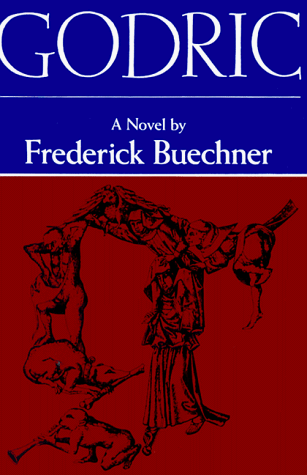∞
A meditation on familial life with selections from “Godric” by Frederick Buechner, and “4 & 20” by Crosby, Stills, Nash, & Young.
Godric had some interesting things to say about his father:
“Aedlward the freeman was my father, and Reginald has it that his name means Keeper of Blessedness. If so, he kept it mostly to himself, more’s the pity. I pity Aedlward. If he pitied me, he never said…
…It was fear kept Aedlward from us, and next to God what he feared of all things most was an empty belly. He had good cause. He had seen poor famished folk eat rat and cat and seen grown men suckle their wives for strength enough to ferret nuts to feed them. Bitterer fare than that a man will go to when his belly starts to gnaw itself. So it was his fear we’d starve that made him starve us for that one of all things that we hungered for the most, which was the man himself.” (“Godric,” pp. 9-10)
An interesting song with at least some similarity is the great song called “4 & 20” written by Stephen Stills.
Four and twenty years ago I come into this life
The son of a woman and a man who lived in strife
He was tired of bein’ poor and he wasn’t into sellin’ door to door
And he worked like the devil to be moreA different kind of poverty now upsets me so
Night after sleepless night I walk the floor and want to know
Why am I so alone? Where is my woman? Can I bring her home?
Have I driven her away? Is she gone?Mornin’ comes the sunrise and I’m driven to my bed
I see that it is empty and there’s devils in my head
I embrace the many colored beast
I grow weary of the torment, can there be no peace?
And I find myself just wishin’ that my life would simply cease
It is extremely difficult to “work like the devil” and provide all that your children need, as Aedlward proved also. The fears of man toward evils such as poverty can bring poverty of soul that results from the starved relationships of father’s and sons (or daughters for that matter). One thing is sure, we all need to seek understanding and have forgiveness for our parents shortcomings that take root in the common struggles of life.
I could not but think of the fact that there was even a similarity in the experience of Jesus the “Son of God” that began in Gethsemane and ended with his crucifixion at Golgotha:
“Now from the sixth hour there was darkness over all the land until the ninth hour. 46 And about the ninth hour Jesus cried out with a loud voice, saying, “Eli, Eli, lema sabachthani?” that is, “My God, my God, why have you forsaken me?” (Matthew 27:45-46)
Though the “rift” in their relationship was for different reasons, not being caused by the “sins of the father” but by the “cup of God’s wrath against the sins of the world” that Jesus willingly endured for our salvation, yet nonetheless there was an unfathomable poverty of soul for Jesus the Son caused by the separation of connection in his relationship to his father.
“But in the garden of Gethsemane, he turns to the Father and all he can see before him is wrath, the abyss, the chasm, the nothingness of the cup. God is the source of all love, all life, all light, all coherence. Therefore exclusion from God is exclusion from the source of all light, all love, all coherence. Jesus began to experience the spiritual, cosmic, infinite disintegration that would happen when he became separated from his Father on the cross. Jesus began to experience merely a foretaste of that, and staggered.” (“King’s Cross” by Timothy Keller, p. 176)
The separation of Jesus from his own Father, was at least partly for the purpose of reconciliation within the familial relationships of the human families.
Original Content © Bryan M. Christman and Manifest Propensity, 2013. Excerpts, links, and reblogging may be used, provided that full and clear credit is given to Bryan M. Christman and Manifest Propensity with appropriate and specific direction to the original content.
